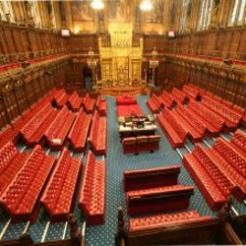The House of Lords has withdrawn a Lobbying Bill amendment on ‘controlled expenditure’ which threatened to prosecute charities for unintended outcomes of their political campaigns.
The amendments to clause 26 addressed non-party campaigning and aimed to stop organisations being fined for campaign outcomes that were not their immediate or primary intention. One amendment proposed a change in phrasing from “intended” to “having as its principal purpose the intention” when addressing a charitable organisation’s political aims.
Debating the bill in the House of Lords yesterday, Lord Hardie said: “The risk of such consequences might well induce organisers of a campaign to abandon it in the regulated period prior to an election. That cannot be desirable.
“We should encourage participation in the democratic process, particularly in the period immediately prior to an election. We should not threaten with prosecution campaigners who are genuinely concerned about social, local or other issues of genuine concern to the electorate.”
Back in September, a government statement defined controlled expenditure as “expenditure ‘which can reasonably be regarded as intended to promote or procure electoral success’”.
Baroness Pitkeathley said yesterday of the Lobbying Bill and its progression: “I have always had a lot of bafflement about the Bill.
“I am baffled as to why it was introduced in the first place by a Government who have always set such store by the Big Society, who have repeatedly assured charities of the vital place that they occupy in public service provision and, moreover, who have set such store by putting the consumer voice at the heart of policy-making.”
She stated that it is vital that there is both clarity and certainty about whether and when which activities will count towards controlled expenditure.
The committee also addressed the “myth” that clauses 26 and 27 - which look at controlled expenditure and changes to existing limits - would not impact smaller charities.
The Earl of Sandwich said that there are often close coalitions between large charities and smaller ones.
“However, these [smaller charities] may now be more independent and in some cases have grown much larger. So the smaller, specialist agencies are often concerned with single issues such as appropriate technology, fair trade, anti-slavery or other aspects of human rights in Burma, Tibet or Sudan.”
He continued: “At the same time, the size of these charities, while in some cases bringing them over the proposed threshold—I welcome the minister’s assurances about the threshold—is not sufficient to justify the added expense and work involved in what I call selective accountability and monitoring in relation to the Bill.”
The threshold relates to the proportion of a charity’s total spending it can allocate to campaigning to procure an electoral advantage before it has to register on the register of lobbyists.
An amendment was withdrawn under the agreement of Lord Hardie, who said: “It is quite clear that there is a certain consensus that it is essential we get the balance right in the Act, avoid unintended consequences and clear up grey areas.”
Other amendments withdrawn in the first day of the Bill’s third reading included one which proposed inserting a new clause before 26 reading that the part will not apply to Northern Ireland.
Another amendment to the bill which would have excluded expenditure that is minor, significant, inconsequential or incidental from controlled expenditure arrangements was also withdrawn.
The committee, which finished last night at 10.30pm, will continue on Wednesday.
Lords reject Lobbying Bill amendment on unintended outcomes
17 Dec 2013
News
The House of Lords has withdrawn a Lobbying Bill amendment on ‘controlled expenditure’ which threatened to prosecute charities for unintended outcomes of their political campaigns.









